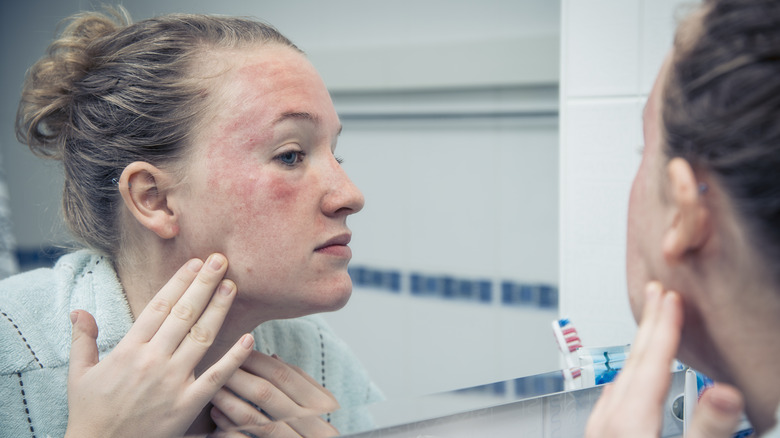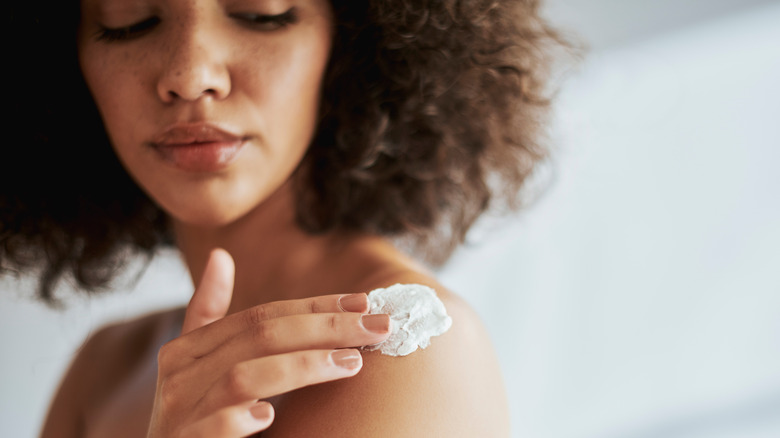Here's Everything To Know About Indurated Skin
Does a part of your skin feel firm, hardened, and less elastic than the surrounding areas? If so, you may be experiencing skin induration. Indurated skin occurs when the skin becomes hardened or firm, resembling a dense or solid mass beneath the surface. The degree of induration can vary based on the underlying cause and severity of the illness. Skin induration can stem from various causes, including infections, inflammation, fibrosis, edema, and even the normal healing process.
According to a 1993 study published in the Journal of the American Academy of Dermatology, skin induration often manifests alongside scleroderma, the chronic tightening of the skin and tissues. Another perspective from Richard L. Kradin, an Associate Professor at Harvard Medical School, indicates that indurated skin can also be a common feature of cellulitis, a bacterial infection that spreads rapidly (as mentioned in Chapter 20 of the book "Diagnostic Pathology of Infectious Disease").
Skin induration can affect anyone, regardless of age, gender, or ethnic background. However, certain factors can increase the risk, such as a history of skin infections, inflammatory conditions, chronic wounds, ulcers, trauma, surgery, or simply the natural aging process. If you suspect you may have skin induration, it's important to understand the condition, available treatments, and potential prognosis.
Is skin induration reversible?
Skin induration is typically considered a symptom, rather than a standalone affliction. Thus, your first course of action should be to seek guidance from a licensed healthcare professional. The potential reversibility of induration depends on its underlying causes, the speed at which you consult a doctor, and the chosen treatment path.
Diagnosis may involve a physical examination, medical history review, and imaging or tests. For instance, if the induration is caused by cellulitis, oral or intravenous antibiotics may form part of the treatment plan, depending on the severity of the infection. On the other hand, while scleroderma cannot be cured, it can be managed through various methods, including medications, physical therapy, and skin protection.
Nikol Natalia Armata, who has a doctorate in medicine, explains that skin induration can also arise from a collection of pus in the body. This condition is called an "abscess," and requires medication to stimulate healthy healing. Another common cause is "dermatitis," a fancy term for skin irritation and inflammation. Dermatitis can often be alleviated by using top hydrating body lotions for super dry skin, and moisturizers to soothe the skin and reverse the induration.
Skin induration can be prevented
Preventing all cases of skin induration is impossible, but you can reduce your risks of developing it with a few tips. Good hygiene practices extend beyond regular baths. Regularly washing your hands can significantly decrease the chances of skin infections that may lead to induration.
Additionally, sunscreen is essential to shield your skin from harmful UV rays. Maintaining well-hydrated skin is another key tip: dry skin is more likely to get dehydrated and irritated damage, which can contribute to induration.
Don't be fooled by oily skin either; it too can become dehydrated, which is why you should still be using a moisturizer even with oily skin. Taking the time to read product labels before use is also essential, as allergic reactions can trigger induration. Before applying new products, perform a patch test to check for any adverse reactions.
Lastly, adopting a healthy lifestyle is vital. When your body is healthy and well-cared for, it becomes better equipped to fight infections. Prioritize a balanced diet, regular exercise, and sufficient sleep. If you sustain an injury, don't tough it out. Instead, look up the appropriate way to care for it. It's best to consult a licensed healthcare practitioner for guidance if it's more than a mere bruise or scrape.


